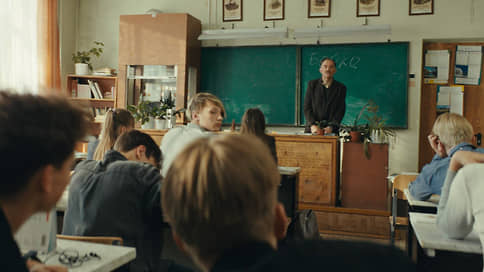Road literacy – Newspaper Kommersant No. 178 (7379) of 09/27/2022
[ad_1]

Ivan Sosnin’s film Distant Relatives, which won the Audience Choice Award at the Window to Europe festival in Vyborg, is being released. This movie, encouraging the love of distant wanderings, at the same time reminds the audience that it would be nice to call parents (or children), and makes it simple, but quite effective by means Yulia Shagelman.
Traveling from point A to point B has been a favorite technique of storytellers of all kinds since at least the time of Homer, if not since the days of the biblical and extra-biblical narrators of the Ancient East. After all, sending your heroes on the road is a great way to break them out of the routine, make them meet with something unknown, make a lot of discoveries (sometimes unwittingly) and get to know yourself better. And for this it is not even necessary to carry the ring to Mordor, you can just drive more than eight thousand kilometers from Khabarovsk to Moscow in a yellow minivan.
Geography teacher Boris Petrovich (one of the last roles of Yevgeny Syty, who died in March of this year) is still familiar with travel only in theory. In class, he draws Baikal on the blackboard and boringly mutters facts about the number of cubic meters of water that the lake holds, but he himself has never seen it, and in general he never left his native Khabarovsk and, as his colleague, Russian teacher Natalya Pavlovna (Irina Pegova) says ), actually knows only one way: from home to work and back.
This teacher generally dislikes Boris Petrovich after he told the school principal that she forced the students to write the word “ass” on the sheets of paper (this was done in order to find out which of them wrote that very word on the board – this divertissement gives in an overall comprehensive representation of the film’s unpretentious humor). But the director himself (Dmitry Lysenkov), and the students of the geographer, are also not particularly fond of, because he is a typical “man in a case”, gloomy unsociable, in whose life there is one joy – a garden where he grows tomatoes and eggplants.
There is no great warmth in the relationship of our hero with his son Misha (Philip Avdeev), who, visiting his father, hears only reproaches: you live wrong, you don’t dress like that, you’re not busy with it (the guy earns by driving cars from Khabarovsk to Moscow). Misha does not remain in debt, he also has his own list of claims against his father. Boris Petrovich’s birthday ends with another quarrel, but the geography teacher is left with Mishin’s gift – the first smartphone in the life of an elderly teacher.
He discovers the joys of the Internet, registers in social networks, but still, the videos of a certain Nadezhda (Elena Yakovleva), a passionate gardener like himself, arouse the greatest interest in him. Accidentally friending her, Boris begins to correspond with her, and soon the discussion of eggplant turns almost into flirting. It turns out that Nadezhda lives in Moscow, and then Boris Petrovich surprises himself, not to mention those around him: he decides to visit her, since Misha, who needs to drive the “mobile home” to the capital, can give him a lift.
This idea does not arouse the slightest enthusiasm in Misha, but it is not possible to overstubborn his father, and the men, young and old, set off. Various adventures await them there: for example, they will get stuck in a swamp, spend the night visiting an old friend Boris Petrovich (Andrey Urgant) – the owner of a ritual office and part-time poet-lover, almost drown in Baikal, take on board the funny hitchhiker Masha (Ekaterina Ageeva) and kidnap a pig. And also, of course, quarrels, reconciliations, frank conversations, growing mutual understanding and, in the end, mutual recognition and forgiveness of all accumulated mistakes.
“Far Near” rolls lightly down a road littered with mostly Hollywood examples of what’s commonly called “feel good movies.” Outside the window of the minivan, marvelous landscapes rush by, and it seems that together with the heroes we are driving through some beautiful, happy, not quite real Russia. The sun always shines in it, man is a friend to man, and even a trucker with a mount at the ready (Kirill Kyaro) turns out to be not at all scary, and the generation gap is overcome with a minimum of effort. After all, who, if not a grandmother who single-handedly raised two children on a meager salary, understands the very essence of feminism, and who, if not she, who is accustomed to washing plastic bags, washing mayonnaise jars and prudently using all this equipment for years, can give youth a clear example of eco-friendly behavior.
The film is easy to blame for naivety and predictability, and this, perhaps, will be fair, it really is. But at the same time, you can’t deny him an ingenuous charm, and the actors, especially Yevgeny Syty and Elena Yakovleva, who briefly appears in the frame, make their characters more voluminous than the simple plot and dialogues imply. The success of any trip largely depends on fellow travelers, and in this case the audience is rather lucky with them.
[ad_2]
Source link






